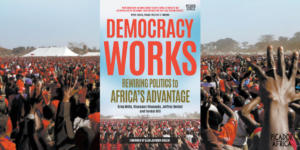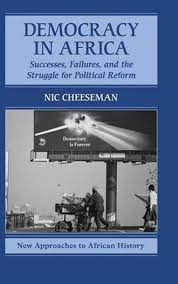 Following military takeovers in five different African countries in the past year, some have suggested that democracy may not be the best form of government on the continent. But Leonard Mbulle-Nziege and Nic Cheeseman argue that – despite these set-backs – democracy is the way forward for Africa.
Following military takeovers in five different African countries in the past year, some have suggested that democracy may not be the best form of government on the continent. But Leonard Mbulle-Nziege and Nic Cheeseman argue that – despite these set-backs – democracy is the way forward for Africa.
Africa can and does reap a democratic dividend – the problem comes when supposedly democratic leaders start to use undemocratic strategies to keep themselves in power against the wishes of their people. Indeed, it is telling that while many people supported the coups that removed Guinea’s former President Alpha Condé and former Malian President Ibrahim Boubacar Keïta, the most recent surveys conducted by Afrobarometer found that 76% of Guineans and 70% of Malians reject military rule, they write for the BBC:
 Rwanda is often cited as an example of what a “strong man” can do in the African context – delivering economic growth while reducing corruption. Yet Rwanda is the exception rather than the rule. In general, the lack of accountability that occurs under dictators and military juntas leads to greater corruption and less effective economic policy. As a result, on average African democracies achieve higher levels of economic growth while doing a better job of providing public services.
Rwanda is often cited as an example of what a “strong man” can do in the African context – delivering economic growth while reducing corruption. Yet Rwanda is the exception rather than the rule. In general, the lack of accountability that occurs under dictators and military juntas leads to greater corruption and less effective economic policy. As a result, on average African democracies achieve higher levels of economic growth while doing a better job of providing public services.
The poor performance of authoritarian forms of government on African soil, and the universal desire to have a say in decisions that affect our own lives, helps to explain why support for democracy remains high, add Mbulle-Nziege, a research analyst at Africa Risk Consulting (ARC) and Cheeseman, a professor of democracy at the University of Birmingham in the UK. RTWT







